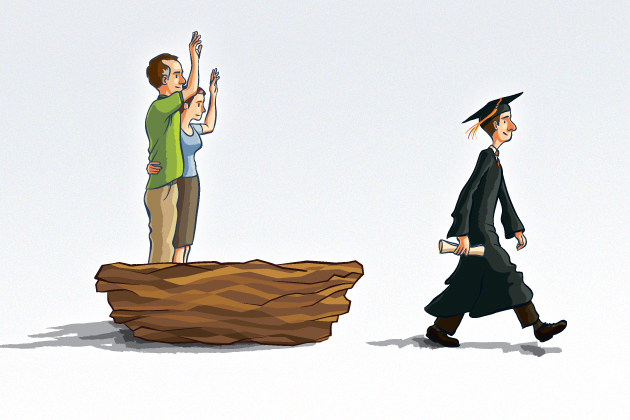
As May approaches, many in the academic world are thinking about conclusions: finals will soon begin and end, the semester is coming to a close and students are graduating and moving on.
No doubt, high school seniors will be thinking the same thing in June as they prepare to graduate, too. But about 10 weeks after that, it’s again a season of beginnings for those headed off to college and for those of us in higher education, as freshmen arrive on campuses in droves for the start of the fall semester. Starting college is one of the most exciting and scariest times of life, for both parents and students. Who succeeds and who fails? How do you navigate the campus and guarantee your own success?
When students arrive at UConn, or when I advise high school students starting at any college or university, I always like to impart some advice about things they can do to help make their college experience successful and satisfying. Because college ought to be incredibly fulfilling and something they will look back on with fondness and pride for the rest of their lives.
So, how to do it right? There’s no shortage of advice in this area, but in all the time I’ve spent as a student, faculty member, and administrator, three simple pieces of wisdom I’ve picked up along the way stick out to me as being the best and most worthwhile. I certainly didn’t invent them, but I love repeating them to any new or future student who will listen. Two books I draw on here, and highly recommend, are Richard Light’s Making the Most of College: Students Speak Their Minds (Harvard University Press) and the newly published How to Succeed in College (While Really Trying): A Professor’s Inside Advice (The University of Chicago Press).
First: get to know at least three of your professors pretty well. Immerse yourself in their classes, engage them, visit them during their office hours – seek their feedback. Talk to them. They can help you not only during your time in school, but throughout your life; recommending you to others, giving good advice, and helping to guide you along the way in whatever path you choose.
Second: learn how to manage your time. Learning how to plan your hours and days to ensure you’re able to do everything you need to do is an incredibly valuable skill. And it stays with you long after you’ve graduated. Good planning prevents you from feeling overwhelmed and it helps you to meet deadlines – and it also ensures that you have time to have fun or relax without neglecting your obligations. Essentially, learn how to estimate how long something will take. Then make plans and stick to them. You’ll be so much happier, calmer, and better off.
Third: join as many things as your time permits. Life at a university is focused on academics, and rightly so. But there’s so much more to the “college experience,” and you need to experience it. Becoming a part of something and getting to know a lot of other people – whether through sports, an academic society, a public service organization, music, student government, a cultural center, or Greek life – helps make you well-rounded. You can form life-long friendships, establish great networking contacts and – who knows? – maybe even meet a future spouse. It teaches you a good deal about people, too – how to work with them to solve problems, settle disagreements, accomplish mutual goals. That will also serve you well for the rest of your life – and you can have so much fun in the process.
I shared these pieces of advice with UConn’s most recent incoming class back in the fall, and I’m delighted every time a student stops me to say they followed them, and are happy they did. I wish I could take credit for coming up with them, but I can’t – I had to learn them myself. The best I can do is pass them along. And if you know someone who will be heading off to school when the summer’s over, you could consider doing the same.



